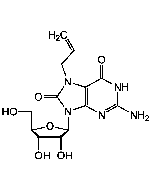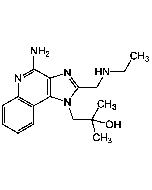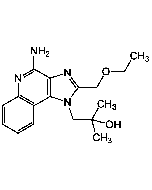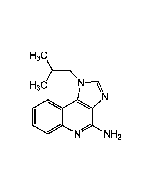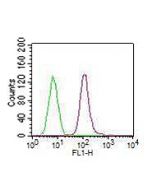Cookie Policy: This site uses cookies to improve your experience. You can find out more about our use of cookies in our Privacy Policy. By continuing to browse this site you agree to our use of cookies.
AdipoGen Life Sciences
anti-TLR7 (human), mAb (ABM2C27)

| Product Details | |
|---|---|
| Synonyms | Toll-like Receptor 7 |
| Product Type | Monoclonal Antibody |
| Properties | |
| Clone | ABM2C27 |
| Isotype | Mouse IgG1κ |
| Immunogen/Antigen | Recombinant human TLR7 protein (aa 500-900). |
| Application |
Flow Cytometry: (0.5μg/106 cells) |
| Crossreactivity | Human |
| Specificity |
Recognizes human TLR7. |
| Purity | Protein G purified. |
| Concentration | 0.5mg/ml |
| Formulation | Liquid. In PBS containing 0.05% BSA and 0.05% sodium azide. |
| Isotype Negative Control | |
| Accession Number | Q9NYK1 |
| Shipping and Handling | |
| Shipping | BLUE ICE |
| Short Term Storage | +4°C |
| Long Term Storage | -20°C |
| Handling Advice |
After opening, prepare aliquots and store at -20°C. Avoid freeze/thaw cycles. |
| Use/Stability |
Stable for at least 1 year after receipt when stored at -20°C. Stable for at least 6 months after receipt when stored at +4°C. |
| Documents | |
| MSDS |
 Download PDF Download PDF |
| Product Specification Sheet | |
| Datasheet |
 Download PDF Download PDF |
TLR7 (Toll-like Receptor 7) is a member of the TLR (Toll-like receptor) family that plays a fundamental role in pathogen recognition and activation of innate immunity. TLR7 is a nucleotide-sensing TLR. TLR7 and TLR8 recognize single-stranded RNA (ssRNA) sequences containing GU-rich or poly-U sequences as their natural ligands, and they are also activated by synthetic small-molecular-weight compounds of the imidazoquinoline family. Both TLR7 and TLR8 signal via MYD88 and TRAF6, leading to NF-κB and antiviral factor, such as IRF family activation, cytokine secretion and the inflammatory response. They are localized intracellularly to endosomal membranes and act as potent activators of innate immune responses upon viral infection. The TLR7 gene is predominantly expressed in lung, placenta and spleen, and lies in close proximity to TLR8 on chromosome X. TLR7 has been shown to play a significant role in the pathogenesis of autoimmune disorders such as Systemic Lupus Erythematosus (SLE) as well as in the regulation of antiviral immunity. Recently, small molecule TLR7/8 agonists have demonstrated potential as vaccine adjuvants, since they directly activate APCs and can enhance both humoral and cellular immune responses, especially Th1 responses. This makes the TLR7/8 signaling pathways interesting therapeutic targets.





